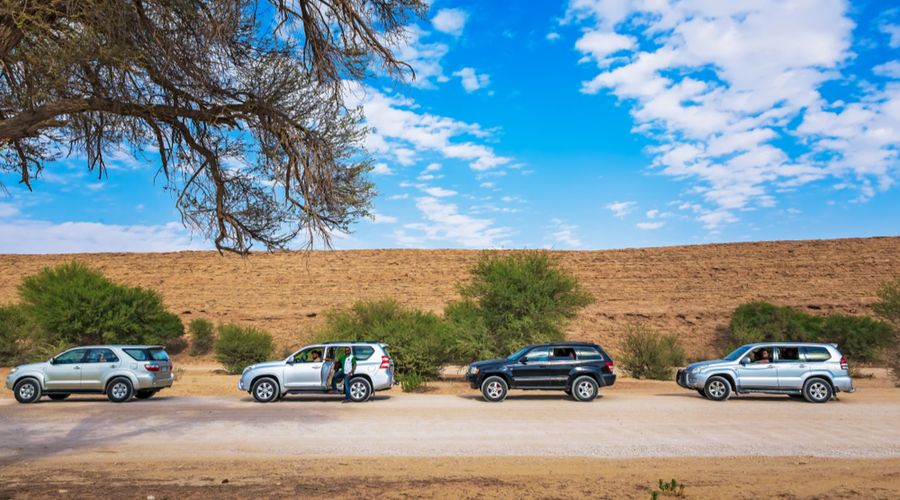Telgani: Partnering for profit in Saudi’s mobility sector

In countries that lack a robust public transport infrastructure, car ownership and renting tend to dominate. Over the past couple of years, several mobility startups have emerged from car rental platforms to peer-to-peer car sharing. When the pandemic hit however, the industry suffered miserably. In 2019 in Saudi Arabia, the car rental market was valued at $996 million according to Statista, dropping to $483 million in 2020.
For traditional car rental companies like Hertz, business dropped 70-80 per cent according to Raed Dodokh, Hertz Saudi Arabia’s national fleet and operations manager.
Many of the mobility startups adapted to the unprecedented situation by either reassessing the focus of their business, adding more services to cater to the changing customer preferences or simply leveraging their own tech stack in order to be able to venture into other sectors.
As lockdown measures were lifted in the country, the initial shock of the pandemic started to tail off and demand for private vehicles has since increased, giving way to several turnaround opportunities for the hard-hit vehicle rental businesses.
Telgani, a Saudi Arabia-based car rental startup, managed to tackle the lockdown-led challenges by introducing new services, notably the addition of delivering the cars to its customers, which attracted the attention of Hertz.
In March, the two companies partnered up to facilitate vehicle rental delivery to their clients. Hertz so far has processed 2500 vehicle deliveries and received almost 4000 bookings through Telgani’s platform thanks to this partnership.
We spoke with Dodokh, and Abdulkader Almkinzy, founder of Telgani to learn more about their partnership, how it came about and the key trends in the car rental market in Saudi Arabia in light of the Covid-19 crisis.
Pivots
“A huge number of expats living in Saudi Arabia are used to renting cars; when the pandemic started, many of them lost their jobs and returned to their home countries, which adversely impacted our short-term rentals business,” says Dodokh.
At the onset of the pandemic, Hertz reduced its retail fleet size and started selling old units, and began to focus more on its corporate segment (B2B lease) in order to bolster its sales and keep afloat.
“We started leasing more vehicles - including trucks, pickups, etc- to the partners from the food industry,” he says. “When we partnered with Telgani, we started adding more brand new cars to our fleet as we started seeing an uptick in the demand for [our] short-term rentals segment once again.”
Telgani first introduced the vehicle rental delivery service shortly after the lockdown came into effect across the Kingdom.
“During the lockdown, people weren't able to buy or rent cars because all of the car dealerships were closed across the country. We started leasing and delivering vehicles to security and health workers who were traveling a lot between cities during these times,” says Almkinzy.
The market was ripe for such a service according to Almkinzy, since visiting a dealership is still frowned-upon amid the ongoing health concerns and social distancing requirements.
“We tend to make the experience of renting a car as easy as ordering and delivering food. The new service came in sync with the customer’s growing appetite for digital ordering,” he explains.
Domestic travel boom
As the economy opened, Telgani’s sales held up with the company fulfilling over 13,000 car deliveries in 2020.
"In June, the company's sales volume bounced back to pre-Covid-19 levels. In the following months, especially in October and November, the company posted a never-seen-before increase in sales," says Almkinzy.
For Telgani, the increase in the number of sales was credited in large part to the recent boom in domestic travel and tourism and the fact that people are still wary of public transport, and prefer to hit the road with their own vehicles instead.
“Currently, the airports operate at 50 per cent capacity; what happened was that the other 50 per cent would use their cars to travel. Usually, people would not put too much mileage on their car because this will affect the car’s sale value. So, they tend to rent a car when they want to travel instead of traveling with their own cars - this is a good market for car rental businesses like us,” said Almkinzy.
The growth in domestic tourism has been a boon for the wider industry. Hertz launched an initiative called “Discover Saudi,” organising safari tours for travelers on top of their car rental service. Telgani will join as a partner for this initiative.
Looking ahead
Statista predicts Saudi Arabia’s car rental industry will grow almost 50 per cent this year to $724 million, but it will take another couple of years for the industry to go back to its 2019 level.
In the meantime, mobility startups and the car rental industry is focusing more on digitisation. Telgani plans to launch its first digital branch in the next six months to further facilitate the renting process for its customers.
Almckinzy adds that the company is currently in the process of integrating with governmental services; Yaqeen and Tem - through which they can validate all the required information about drivers in a step to automate the vehicle rental document process.


